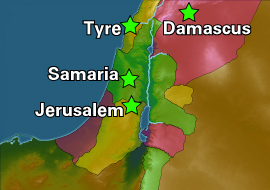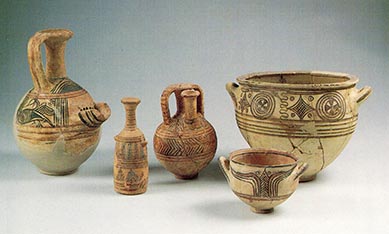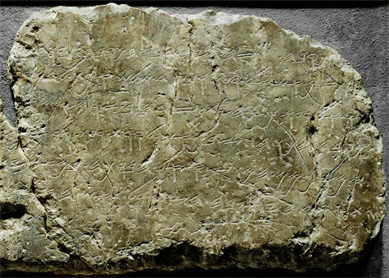King Hezekiah ruled the southern kingdom of Judah towards the end of the eighth century BCE. Biblical writers judged him very favorably. They viewed Hezekiah as an exceptionally righteous king and likened him to David (2Kgs 18:3; 2Chr 29:2). They even gave Hezekiah a distinguished position among the kings of Judah (2Kgs 18:5-6; cf. 2Kgs 23:25). Especially important was Hezekiah’s rebellion against Assyria after Sennacherib became its new king in 705 BCE. Sennacherib’s retaliatory invasion of Judah in ca. 701 BCE resulted in a military standoff between Hezekiah and the Assyrian regime, and this event formed a major basis for Hezekiah’s positive biblical evaluation. In contrast, many modern critical histories of Judah have a less favorable assessment of Hezekiah’s reign, for historians regularly conclude that Judah’s borders ultimately shrank under Hezekiah’s rule due to this very same rebellion!
Why did biblical writers view Hezekiah’s standoff with the Assyrian military threat positively?
Hezekiah’s rebellion left him in an extremely dangerous position. Assyrian kings bragged about their extreme cruelty in inscriptions and depicted tortuous acts in their palace reliefs. Their program of terror included atrocities such as beheadings, flaying, and the gruesome display of corpses. From conquered territories they demanded heavy tribute. Hezekiah must have been aware of what he and his people could face if the Assyrians conquered Jerusalem.
Biblical writers viewed Hezekiah’s response to his precarious position through a theological lens. Put differently, they were not necessarily primarily concerned with the political fallout of Hezekiah’s rebellion. Instead, they were interested in Hezekiah’s religious response to the Assyrian threat. On what would Hezekiah rely? In whom would he trust?
The answer to these questions, according the biblical writers, is that Hezekiah chose to trust and rely on God (2Chr 32:7-8). Despite Assyrian threats and mockery designed to coax Jerusalem into submission, Hezekiah resisted, turned to God in prayer for deliverance, and sought out the prophet Isaiah (2Kgs 19:1-19; 2Chr 32:20; Isa 37:1-20). These decisions demonstrated that Hezekiah “trusted” God (2Kgs 18:5).
Biblical writers report that Hezekiah’s prayer was miraculously answered, for a certain “angel of the Lord” slaughtered 185,000 troops in the Assyrian army (2Kgs 19:20-37; Isa 37:21-38). Then, after the massacre, Sennacherib returned home where he was assassinated, as foretold by God through Isaiah to Hezekiah (2Kgs 19:7; Isa 37:7). Jerusalem’s deliverance from the Assyrian threat, then, was tied to Hezekiah’s trust in God.
Were Hezekiah’s biblical evaluators uncritical?
Biblical writers had other reasons to evaluate Hezekiah favorably. Especially important in the eyes of biblical writers was Hezekiah’s restoration of proper worship. In the book of Kings, Hezekiah is commended for purging illicit worship from Judah (2Kgs 18:4). He did so by removing “high places” (illegitimate religious sites), shattering “sacred pillars” (standing stones often connected to deities), cutting down “the asherah” (a cultic object representing the goddess Asherah), and crushing the bronze serpent made by Moses (Num 21:8-9) after it had become an object of veneration (named “Nehushtan”). In Chronicles, Hezekiah’s religious endeavors are treated at greater length, where Hezekiah is especially esteemed for reviving proper worship at the Jerusalem temple, carrying out the Passover, and supporting the priests and Levites (2Chr 29:3-31:21).
Biblical writers certainly saw in Hezekiah an exemplary model of trust and conduct, but it would be a mistake to consider these writers as “uncritical” of Hezekiah. In fact, it is in light of Hezekiah’s exemplary righteousness that other, less positive, episodes from his career should be viewed. The episode recounting Hezekiah’s interactions with Babylonian envoys from the Chaldean insurgent Merodach-baladan has a negative tone, for it ends with a prophetic word announcing coming doom and an unflattering response from Hezekiah (2Kgs 20:12-19; Isa 39:1-8). Moreover, Hezekiah’s prideful response to an answered prayer for healing from a terminal illness resulted in divine wrath. Though this wrath was deferred because of penance (“humbling”), the episode remains an overt criticism (2Chr 32:25-26). Hezekiah’s initial reliance on Egypt (2Kgs 18:21-24; Isa 36:6-9) appears to be critiqued in Isa 30:1-7 and Isa 31:1-3. Not even Hezekiah, highly esteemed among the kings of Judah, was immune from criticism. Such criticisms should be considered when viewing Hezekiah in the larger theological arc of the Bible.
Bibliography
- Arnold, B. T. “Hezekiah,” Pages 407–413 in Dictionary of the Old Testament: Historical Books. Edited by B. T. Arnold and H. G. M. Williamson. Downers Grove, IL: InterVarsity Press, 2005.
- Allen, Leslie C. “The First and Second Books of Chronicles.” Pages 297–659 in vol. 3 of The New Interpreter’s Bible. Edited by Leander Keck et al. Nashville: Abingdon, 1999.
- Seow, Choon-Leong. “The First and Second Books of Kings.” Pages 1–295 in vol. 3 of The New Interpreter’s Bible. Edited by Leander Keck et al. Nashville: Abingdon, 1999.




